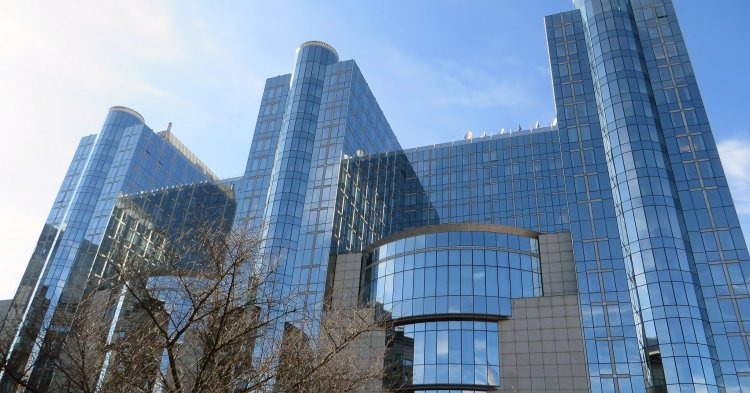Two weeks ago, our author Andreea Camen argued for the European Parliament’s permanent seat to be moved to Strasbourg once and for all. While finally abandoning the travelling circus would put an end to wasting taxpayers’ money, it is still contested where the permanent seat should eventually be. All Franco-German symbolism aside, Bastian De Monte thinks there can only be one city to host our most important institution: Brussels.
Strasbourg – the city of Franco-German reconciliation and friendship. The Alsatian capital has changed authority quite a few times in history: French during the French Revolution, German after the Franco-Prussian war, French after WWI and then annexed during WWII. It is for good reason that the Council of Europe and the European Court of Human Rights are based there [1] and that the EU’s citizen representation has also been headquartered in this formerly contested city – an act of symbolism, connecting people.
All those who have been to this beautiful region realise how the actual border has meanwhile disappeared, and cross-border cooperation will even be further reinforced through the Treaty of Aachen. Undeniably, Strasbourg had been wisely chosen as the city to host a number of international institutions – what a sublime symbol indeed!
More than Franco-German reconciliation
The thing is… these days the European project goes much beyond the friendship between France and Germany. No one would deny that reconciliation and war-prevention were the key drivers of early integration, but the Union has grown and advanced, includes many other smaller and newer Member States. There is a certain logic behind not having the EU capital located in a big state and that might have helped Brussels – initially being chosen because It was first in the rotation cycle and moving was too much of a burden in the end – to be widely accepted in this function it has de facto exercised for a long time already.
On another note, EU agencies are rightfully located in various cities and towns across the Union – the Fundamental Rights Agency in Vienna, the drugs agency in Lisbon, Frontex in Warsaw, and many more. Similarly, it is perfectly arguable that the independent European Court of Justice sits in Luxembourg, just like the German constitutional court is not in Berlin but Karlsruhe.
Let’s be pragmatic
But first and foremost, we need to consider that the travelling circus would not end if we moved the European Parliament permanently to Strasbourg. This is for the simple reason that all the work is in fact done in Brussels where the Commission initiates law-making. MEPs, their assistants and the Parliament’s civil servants would still have to travel to Brussels – or the quality of legislation would suffer. Indeed, technological progress can serve as a remedy but – let’s be honest here – video calls are barely a good substitute for actual physical presence. Moving the European Parliament’s permanent seat to Strasbourg thus means significantly reducing the influence of the only directly elected EU institution.
The seat of the European Parliament is enshrined in the treaties and while in a renegotiation the Parliament would have a say, it will be up to Member States to ratify new treaties, leaving the Parliament with little power over its own location. As self-determination can never be a wrong way to go, we must overcome national vanities and leave it up to the institution itself to decide where it wants to be based. While this remains pure speculation, it can be assumed MEPs would – for pragmatic reasons – probably opt for Brussels.
The one EU capital
Strasbourg can and shall remain the city of human rights and the seat of the Council of Europe. But as our European Union is advancing politically – and eventually assuming a federal structure – our most important institutions should be in our one political capital. And moving the European Parliament permanently to Brussels would indeed reinforce this position.
In order not to become like the US capital – nicely nicknamed “the Swamp” by its very own supreme (p)resident – all this must of course go along with a genuinely European civic education early on. Every European student (and elder citizens alike) should have the chance to make a trip to Brussels, tour the EU institutions, truly understand how the EU works and how “Brussels” represents and is related to them and their fellow Europeans. And then, the city will become a symbol of its own: the one common capital, by the people, for the people.



Follow the comments: |
|
